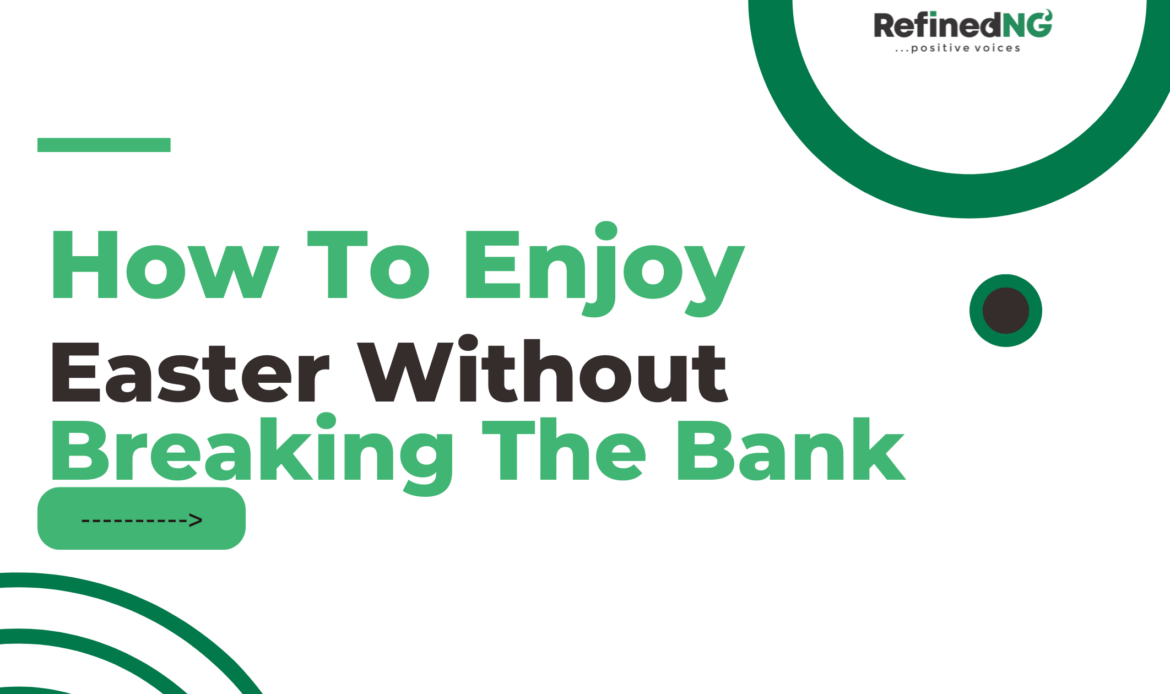
In Nigeria, Easter isn’t just a long weekend—it’s a time for celebration, connection, and renewal. From family feasts and fashion-forward church outings to gifts for loved ones and last-minute travels, the season can quickly shift from joyful to financially stressful.
Many of us feel the pressure to go big—because “it’s once a year”—only to regret it by the end of the month. But what if you could fully enjoy the festivities without the spending guilt? As Easter approaches, let’s explore how to stay festive, thoughtful, and budget-smart—so your wallet doesn’t suffer while your spirit soars.
Read: Money & Gratitude: Lessons From Ramadan for Long-Term Financial Well-Being
Why Easter Spending Creeps Up
For many Nigerians, Easter comes with cultural and spiritual expectations that naturally influence spending. There’s the urge to wear something new to church, prepare special meals, host or visit extended family, and ensure the kids get treats or fun experiences. These aren’t bad things—in fact, they’re beautiful traditions. But without a spending plan, they quickly add up.
Part of the reason spending spirals is the “seasonal exception” mindset: the idea that it’s okay to splurge just this once. Combine that with last-minute planning, peer pressure (especially on social media), and rising food and fuel prices, and suddenly you’re dipping into your savings—or worse, going into debt.
Another sneaky culprit is impulsive generosity. During holidays, there’s often pressure to give more—whether to religious causes, family members, or community projects—which can be fulfilling but financially draining if done without boundaries.
Recognizing these patterns is the first step to changing them. Easter doesn’t have to mean financial hangovers. It can still be a joyful time—rooted in meaning, not materialism.
Smart Spending Strategies for a Festive Easter

Celebrating Easter on a budget doesn’t mean stripping the joy out of the holiday. With some thoughtful planning and a little creativity, you can enjoy all the goodness without the financial regrets.
Start with gifting. You don’t have to buy extravagant items to show love. Consider personalized or homemade gifts—especially for children or close friends. A simple note, handmade crafts, or a shared experience can go a long way. If you must buy, set a clear budget and stick to it. Price comparison and shopping early can also save you from costly last-minute panic buys.
When it comes to food, one word: collaboration. Hosting Easter lunch or dinner? Don’t carry the full financial burden alone. Go potluck-style and ask guests to contribute a dish. This not only reduces your costs but also brings people together in a more communal way. Shopping in advance, buying in bulk, and cooking from scratch will also stretch your budget.
For families, Easter isn’t complete without fun for the kids—but you don’t need a fancy event to create memories. Organize a simple egg hunt, a picnic at home, or a movie night. Experiences often leave a deeper impression than expensive toys or outings.
Decorations can also be DIY. With a few coloured papers, ribbons, and reusable items, you can add festive touches without breaking the bank. Pinterest and Instagram are goldmines for budget-friendly ideas.
Ultimately, it’s the atmosphere, not the expense, that makes Easter special. With a little creativity and planning, you can celebrate fully—without emptying your account.
Planning Ahead: Next Easter Starts Now

The best way to enjoy Easter without financial stress is to start planning for the next one now. It may sound premature, but the truth is that many holiday financial headaches happen because we treat them like surprises, not recurring events.
Think of Easter the same way you think of December: it comes around every year, and with it, similar expenses—food, gifts, travel, clothes. Setting aside monthly or quarterly small amounts, you can build a “festive fund” that cushions you when the season rolls around. It doesn’t have to be big. Even ₦2,000–₦5,000 monthly adds up over time.
Use digital savings tools like PiggyVest or Cowrywise to create a separate Easter savings pot. Or go old-school with a labelled envelope system. The key is consistency, not perfection.
You can also create a simple Easter checklist—things you typically spend on—and use it to track prices throughout the year. That way, you can take advantage of off-season deals rather than buying everything in April when prices peak.
Planning ahead gives you financial breathing room and peace of mind. It allows you to be generous, joyful, and present during Easter, instead of stressed about your account balance.
Read: Post-Ramadan Reset: How to Rebuild Your Finances Without Losing the Spirit of Giving
Celebrating With Intention

Easter is more than gifts, outfits, or grand feasts—it’s about reflection, renewal, and togetherness. And while spending can be part of the celebration, it doesn’t have to define it. Choosing to be intentional with your money doesn’t reduce the meaning of the season—it actually enhances it.
When you plan ahead, budget smartly, and find creative ways to celebrate, you remove the financial stress that often follows the holidays. You give yourself the freedom to enjoy Easter for what it truly is—time with loved ones, expressions of faith, and moments that create lasting memories.
So, whether you’re hosting a family lunch or looking for new outfits, do it on your terms—not under pressure. Let this Easter be where joy isn’t overshadowed by guilt, your wallet gets a break, and your heart is full.
Because at the end of the day, the best kind of celebration is one that leaves you richer in experience, not poorer in pocket.
